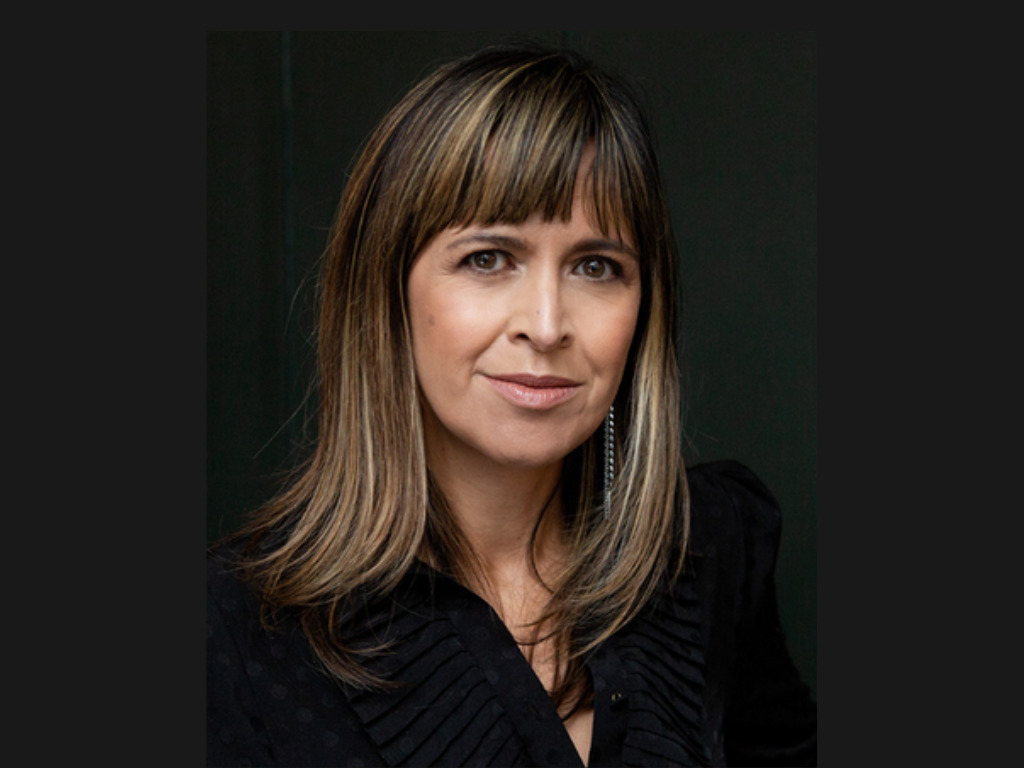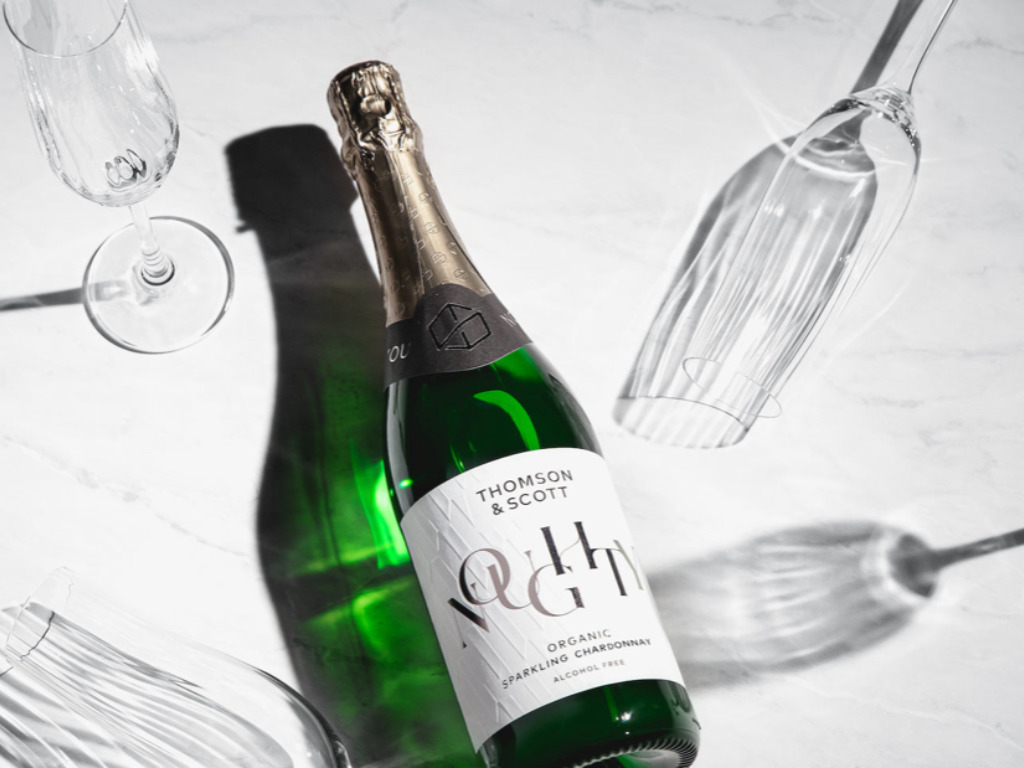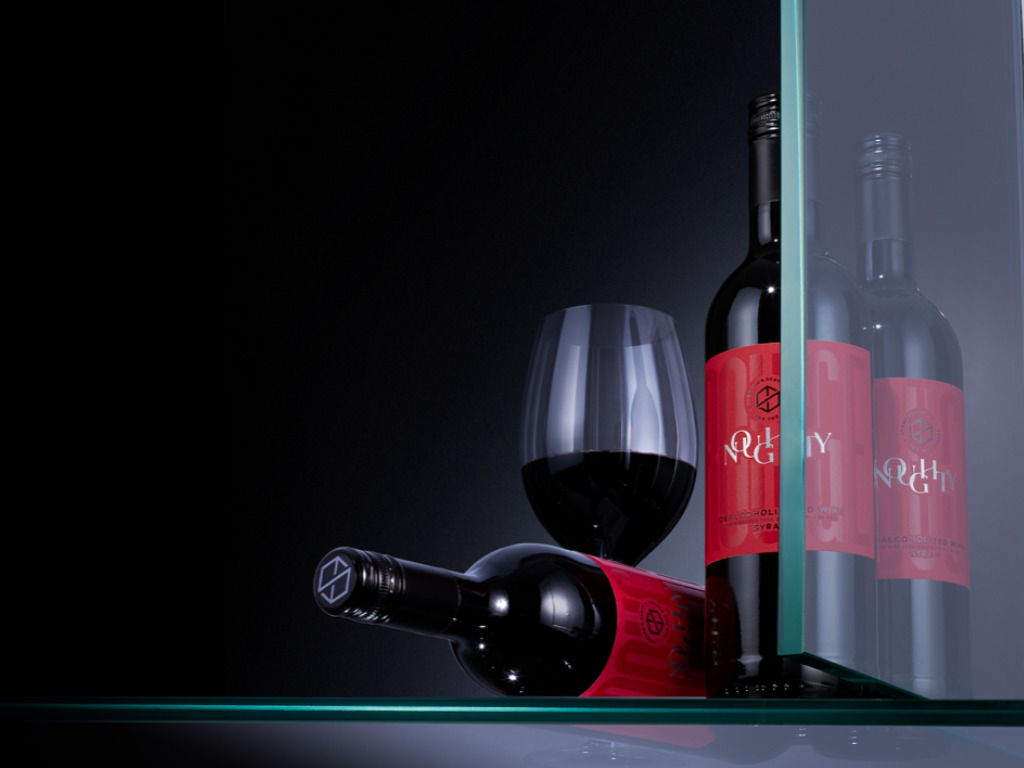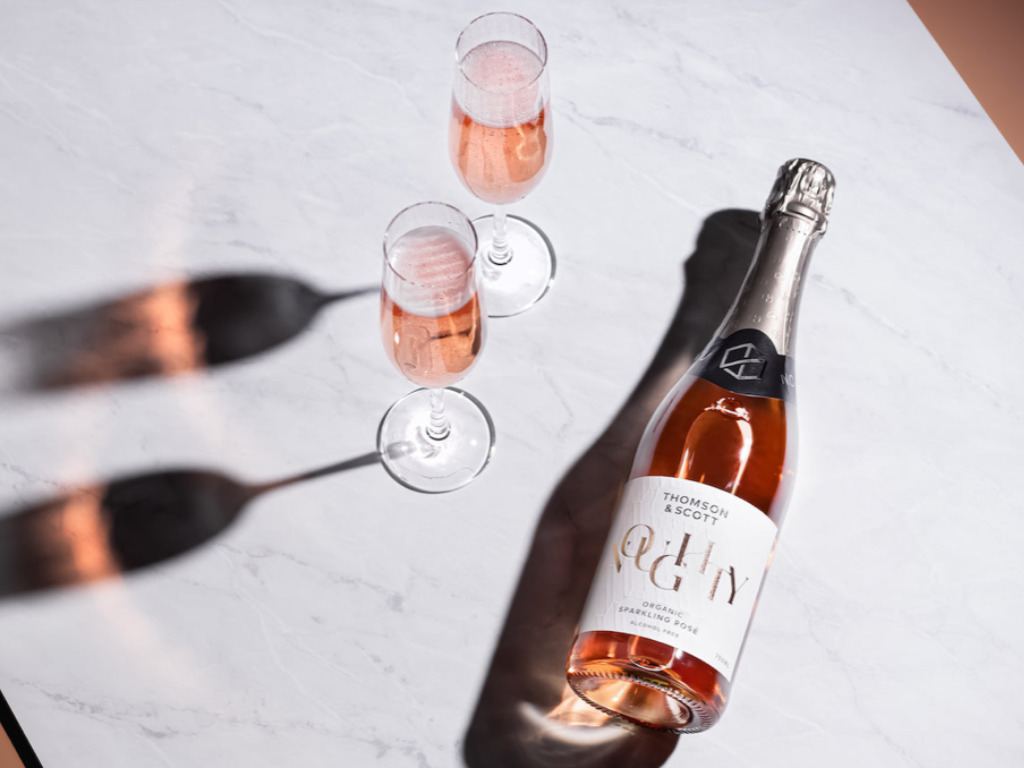4 Mins Read
Thomson & Scott, a certified B Corp, has released a range of alcohol-free wines under brand name Noughty. Low in sugar and sulfites and certified as vegan and Halal, the drinks have been conceived to cater to health-conscious consumers. Founder Amanda Thomson drew on her plant-based no-sugar diet for inspiration and is using Noughty to campaign for transparency in winemaking and labelling.
Noughty is currently stocked throughout the U.S., Europe, and Australia. Launched varieties are presently limited to sparkling chardonnay and rosé, plus a de-alcoholised South African red wine. The startup told Green Queen that consumers are increasingly looking to reduce their alcohol intake, without sacrificing the experience of drinking. Noughty offers a compromise between the two.

The demand for alcohol-free wine
The global non-alcoholic drinks market reached $1.36 trillion in 2022. It is predicted to grow annually by 5.56 percent. Though traditional soft drinks remain the biggest market segment, alcohol-free versions of popular drinks are expected to show fast growth.
In 2021, sales of non-alcoholic wine were estimated to have reached $1.6 billion. Predictions of 10.4 percent annual growth mean that by 2031, the sector could reach $4.5 billion. The growing clean eating and drinking trend, plus general wellness awareness have been identified as key market drivers. It is thought that these increased during the pandemic when, contrary to initial thoughts, consumers ingested less alcohol than before the pandemic hit. Experts had previously suggested that consumers would stockpile alcohol and become more likely to drink it during lockdown periods.
“There seems to be an international cultural shift towards a more healthy and balanced lifestyle for many of us,” Amanda Thomson, CEO and founder of Thomson & Scott told Green Queen. “Having better alcohol-free options allows even those who love a drink or two to moderate throughout the week.”
A 2018 Lancet study found that there is no amount of alcohol that is safe to drink. The findings contradicted commonly held assertions that drinking in moderation posed little or no threat to human health. Though the risk of heart disease can be lessened through moderate drinking, the increased likelihood of cancer and other diseases outweighs the potential benefit. The upsides of drinking alcohol, in terms of heart health, can be replicated with medication and/or diet, as it is the blood-thinning capabilities of alcohol that often create positive effects.

Noughty’s approach to capturing market share
The startup cites leading manufacturers making their own alcohol-free alternatives to spirits and beer as a marker of how the drinks sector is changing. Noughty has chosen to take the premium path, creating new versions of popular tipples that taste the same as their counterparts, but without any negative side effects. It also claims to be setting the environmental bar higher.
“I think if people are conscious of what they are putting into their bodies and therefore selecting alcohol-free wine they are most likely also concerned with the environment and our impact on it,” Thomson said. “So I guess there is an argument to say that those people with the mindset to have a balanced lifestyle are also conscious of the importance of protecting the environment. I certainly am and this is why I demanded that we make sure all our packaging is 100% compostable and recyclable and that we attained B Corporation certification.”

Generational attitudes to alcohol are changing
Last year it was reported that millenials are the generation driving alcohol-free consumption, with Gen Z following suit. The rise of booze-free challenges, including ‘Sober October’ and ‘Dry January’ has helped to bring the refusal of hard drinks into cultural dialogue, with teetotallers no longer mocked for choosing an alcohol-free option.
All photos by Noughty.




